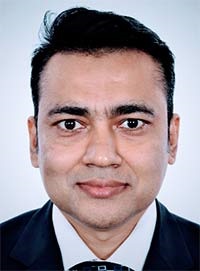Why our main political parties loath to complete reforms
Dr Mohd Mizanur Rahman | Source : Daily Observer, 10 March 2025

Bangladesh is at a crossroads. The transition of political power is supposed to bring new hope, new energy, and a fresh perspective to governance. But beyond the faces that change with each election, does our fundamental character as a nation improve? Do we, as citizens and leaders, genuinely work towards making Bangladesh a better, more just, and more stable place for all? These are the questions that need deeper reflection as we find ourselves grappling with a worsening socio-political situation.
The present situation in Bangladesh is alarming. Government employees seem indifferent to their duties, often disregarding orders from the interim government. Public service, which should be the backbone of a functioning society, has instead turned into a sluggish and inefficient system. Government employees, rather than working efficiently within a short timeframe, prolong tasks unnecessarily, causing frustration among citizens. This lack of accountability leads to a breakdown of trust in the system, further weakening governance.
Political instability remains a long-standing issue. The transition of power is never smooth, and the interim government struggles to gain full cooperation from opposition parties. While elections come and go, the chaos remains the same. Political parties engage in endless blame games, prioritizing their own interests over national stability. The interim government is met with resistance rather than cooperation, and the true interests of the people are often lost in the battle for power.
If other political parties genuinely want to bring change, why do they hesitate to work with the interim government for the betterment of the nation? Why is there a constant shadow of distrust and hidden agendas? The reality is that no one wants to lose their grip on power, and thus, instead of working together, they work against each other.
The present situation in Bangladesh is alarming. Government employees seem indifferent to their duties, often disregarding orders from the interim government. Public service, which should be the backbone of a functioning society, has instead turned into a sluggish and inefficient system.
As political uncertainty grows, so does crime. Bangladesh has seen an increase in robbery, stealing, and other criminal activities. Economic struggles, unemployment, and lawlessness contribute to a society where crime becomes a means of survival for some. Criminals feel emboldened when they see a lack of governance and policing. Citizens are no longer safe in their own neighbourhoods, and fear has replaced the sense of security that a nation should provide. The police force and judicial system seem ineffective in tackling these rising concerns. What is the point of economic growth if people cannot live in peace? If the government cannot ensure safety, who will?
Despite the worsening situation, there is little effort to identify and solve the root problems. Politicians continue to debate on the surface, avoiding the core issues. No one asks the real question: Why is governance failing? Why are government employees not efficient? Why is crime rising? Why do political parties refuse to cooperate? It is easier to blame opponents than to self-reflect. Without addressing the root causes, how can we ever move towards a stable and progressive Bangladesh?
The real truth is often hidden. Political parties operate with their own agendas, and the common people are left in the dark about the black-and-white realities behind the scenes. Every party claims to work for the people, but do they truly? If so, why does the nation remain in chaos after every election? Why do interim governments face resistance instead of collaboration? The people deserve transparency, yet they receive nothing but misinformation and political drama.
Bangladeshis have long struggled to feel safe in their own country. From one generation to the next, instability has remained a constant. Many families worry about their children's safety, education, and overall well-being. The lack of stability has led many to seek opportunities abroad, further draining the country's intellectual and economic resources. People dream of a future where their children can grow up in a secure and prosperous land, yet that dream seems distant.
No mother wants her child to grow up in fear of crime. No father wants to see his hard-earned money taken away by corruption and inefficiency. No citizen wants to live in a country where governance is a game of power rather than a commitment to the welfare of the people. Yet, this is the reality we face.
The change of political leadership will not automatically bring positive change unless there is a transformation in our collective values, character, and humanity. Bangladesh needs not just a new government, but a new mindset-one that prioritizes efficiency, accountability, cooperation, and justice. Government employees must uphold their responsibilities with integrity. Political parties must set aside their differences for the sake of national progress. Law enforcement agencies must actively work to protect citizens. And above all, we as individuals must demand better, not just from our leaders, but from ourselves as well.
A stable Bangladesh is not an impossible dream, but it requires an honest effort from every sector of society. True patriotism is not just about waving flags and chanting slogans-it is about working together to create a country where safety, stability, and progress are the norm, not the exception. If we fail to realize this, then no matter how many governments come and go, the fundamental problems will remain unchanged. The question remains: Will we finally rise above political differences and self-interest to build a better Bangladesh, or will we continue to repeat the cycle of instability and disappointment?
The writer is Assistant Professor & Research Fellow, Management & Science University, Malaysia